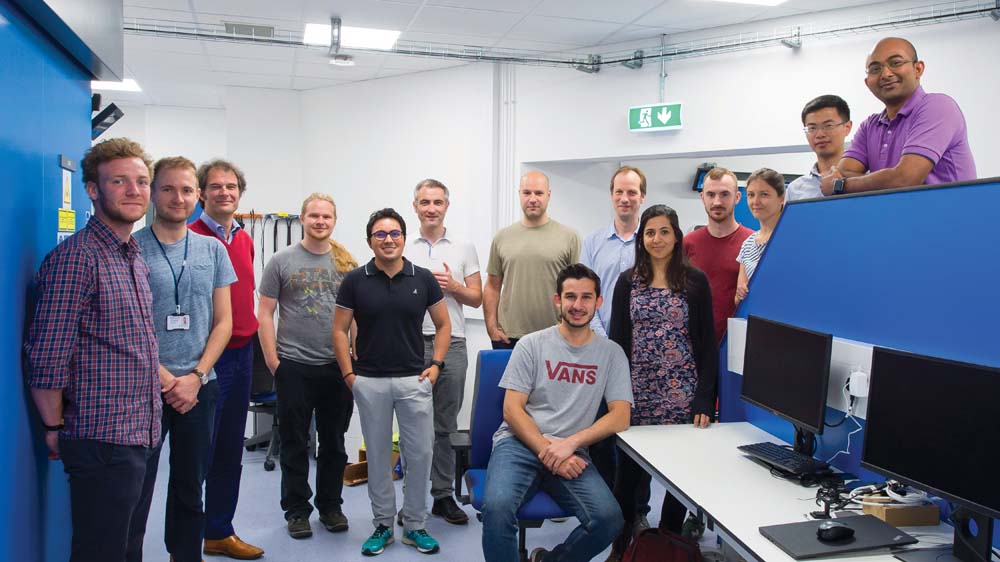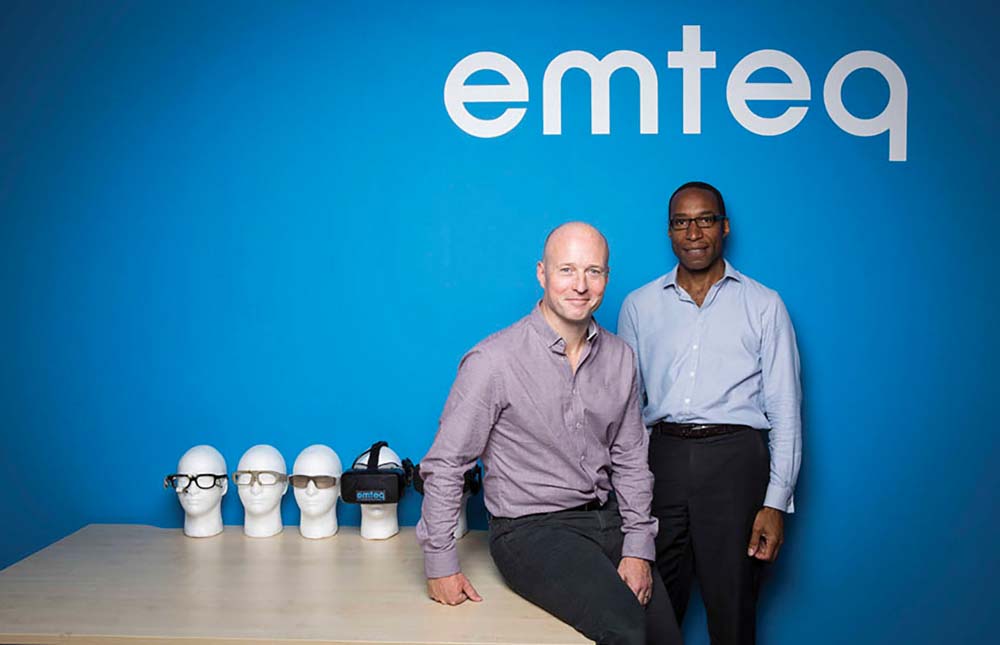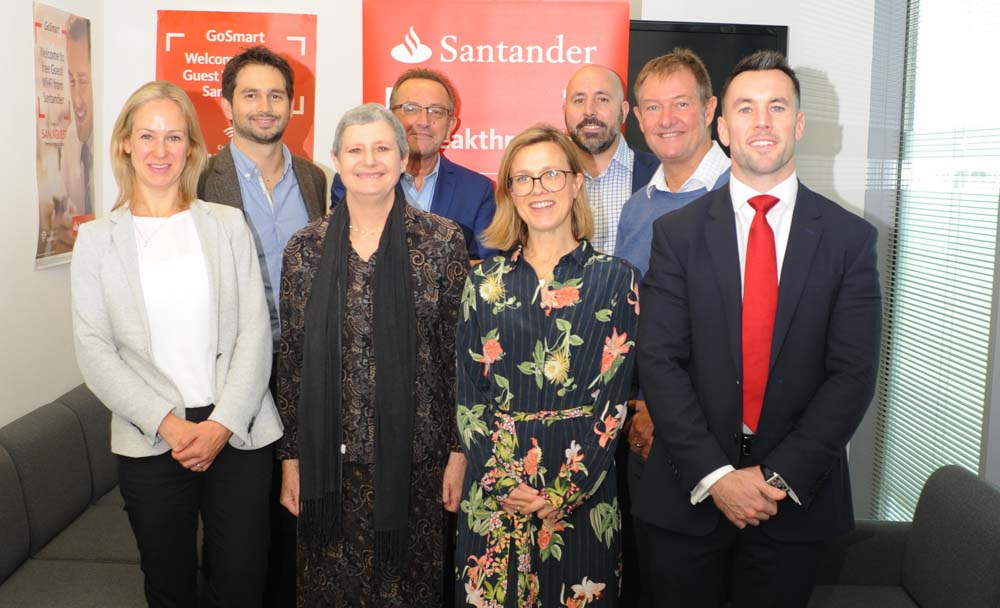
Members of Sussex Innovation’s business incubation network tend to come from academic or technical backgrounds, or are working on emerging technologies and knowledge-based enterprises. In other words, they are perfectly suited to make use of the UK’s business innovation grant programmes.
So, when should you consider looking for grant funding for your business, what is expected of applications, and how can you improve your chances of securing funding? Founders and experts from the Sussex Innovation community share their advice.
Data software agency Datanauts were the junior partners in a successful bid to Innovate UK in 2011. The grant round focused on projects that involved the harnessing of large and diverse data sets, and the business received half of a £500,000 grant.
“We’ve also had one unsuccessful bid, to their open innovation programme,” says founder Peter Osborne. “The lesson there is that you stand a much better chance with a more targeted bid that expressly addresses a niche they’re looking to fill. As a government organisation, Innovate UK are also very focused on ‘UK plc’ – projects that will drive employment and exports.”
The project drew on public data sets to provide the insurance industry with more accurate information about the location and construction materials of the properties they cover. It was delivered in partnership with another small business, ImageCat, and a department at York University.
“I wouldn’t be afraid of going after these grants as a micro-business, because they are great for pre-commercialisation projects,” says Peter. “Being part of a consortium, particularly one with a higher education connection, is definitely a plus. We found that they had very supportive programme officers who gave excellent advice about monetising the product – it’s worth thinking early on about what you’re going to do beyond the life of the grant.”
CDO2 was founded by Gary Kendall in 2004 as a financial technology company. With the intention of pursuing his academic interests, Gary moved to the Sussex Innovation centre in 2017 to work with a new area of technology. Together with the Sussex programme for Quantum Research, they led a successful bid for over £450,000 as part of the government’s Faraday Battery Challenge, to help develop new batteries for electric vehicles.
“It was quite a serendipitous process,” says Gary. “I’d just opened an office here at SINC and had a chance conversation at an Innovate UK conference with a colleague at Queen Mary University in London. I suddenly realised that we were working on different parts of the same problem, and sure enough, there was a funding call that it could fit well. I wrote the application to answer the brief, which is really the most essential piece of advice I can give.”
Innovate UK awarded the grant to an interdisciplinary consortium involving CDO2, the University of Sussex’s Physics Department, Queen Mary and INEX Microtechnology Ltd. The funds will be used to conduct a study focused on emerging quantum vendor technology, measuring the current flow through electric vehicle batteries, with the aim of extending battery life, enhancing performance and developing a new battery management system demonstrator.
Gary noted how their success was partly because they applied to a specific call for funding, which has a higher success rate than an open call for funding. The Faraday Battery Challenge was part of an ‘Industrial Strategy Challenge Fund’. This is a Government funding scheme which aims to bring together the UK science industry and business innovation to tackle societal and business challenges today.
Emteq have developed ground-breaking emotion recognition technology that will have a huge impact in VR, educational research and healthcare. Their technology measures emotions through facial expressions and biometric response. The business has received several grants over its first two years of trading, most recently from Innovate UK’s emerging technology fund and the Small Business Research Initiative. The money has funded projects ranging from the development of therapy tools for patients with facial palsy, to more commercial applications as an aid for market research.
“Even if you are working on a project designed to have a social impact – as we are – it’s easiest to win grant bids when you can define the commercial opportunity,” says founder Dr Charles Nduka. “Don’t be afraid to get help with writing your bid from an experienced professional. Also, consider how you demonstrate that you’ve thought through and de-risked the potential pitfalls that are inherent in any innovative project – it’s a challenge, but a valuable one for a young business to go through.”
Mike Herd, the Executive Director at Sussex Innovation, has worked closely with many of the members in the incubation network who received funding. He informed us about alternate local opportunities to apply for grants, especially for capital projects. Local LEP regularly run grant programmes focused on supporting growth, these local programmes may also focus on jobs rather than intellectual property. Also, always look to understand who will be evaluating your application – while the evaluators for Innovate UK will be technical, for local grant schemes it’s more likely to be a local accountant or bank manager who may appreciate more commercial language.
One of the best grants available for innovative businesses in the UK is R&D Tax Credits, if your accountant hasn’t advised you on these – ask the question. The vast majority of Sussex Innovation businesses receive funding from this source.
“Grants can be a great way of bringing much needed ‘free money’ into a business, and of strengthening the credibility of the product development by having a funder’s endorsement,” says Mike. “They can also be an unnecessary distraction if you don’t find the right grant for your business. Grants inevitably have an evaluation period, and this can hold a project back and generate frustration. Finally, make sure you understand any State-Aid implications of different grants and how they might affect your R&D Tax Credits.”
Grants can help catapult your business into success, bringing in both investment and public interest. The process is not streamlined, individuals must deliver an expert written bid and successfully pitch their idea. All in all, if you or your organisation has an innovative solution to an existing area of interest in either business or technology, your chance of success is very high. While there are many types of grants out there, it’s all about finding the right one for you.





